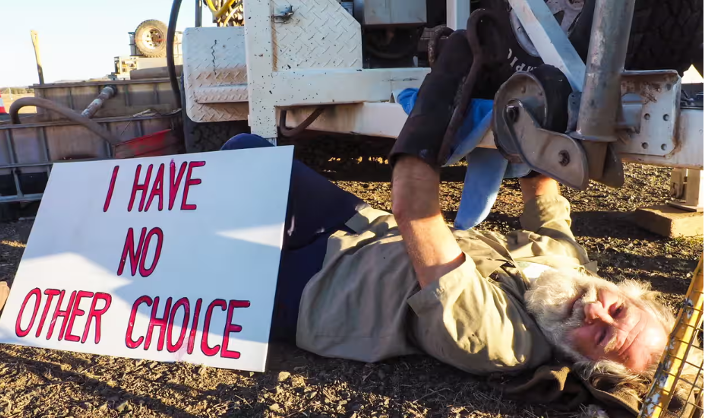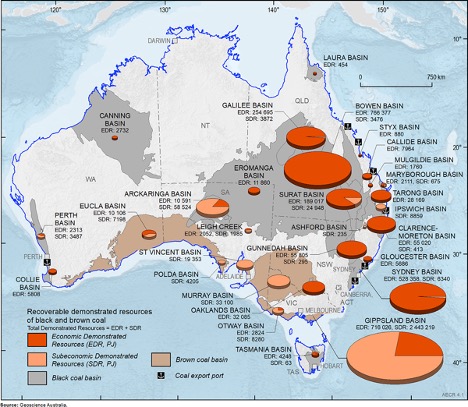By Eirini Tassi,
We can no longer doubt that the climate crisis is here: heatwaves, uncontrollable fires, extreme weather; it has come to a point where island nations like Tuvalu must digitise their lands to preserve any knowledge of their civilisation before it gets lost underwater. And yet, climate mitigation always seems to fall short, especially when more radical solutions like decarbonisation are put on the table. While it is arguably difficult for nation-states that are dependent on fossil fuel to transition to other forms of energy, the systematic stagnation of decarbonisation plans reveals that the issue runs a bit deeper than we expect. Yes, it is lobbyists, it is industrialists, and it is politicians’ agendas, but what ultimately prevents effective reforms is how these actors portray fossil fuels and decarbonisation to the general public. In their article, “‘We’re in the coal business’: Maintaining fossil fuel hegemony in the face of climate change”, scholars Christopher Wright, Randi Irwin, Daniel Nyberg, and Vanessa Bowden dissect step-by-step how this is done, by looking at how political and corporate elites portray the Australian fossil fuel industry. By strategically constructing the “coal business” as the zeitgeist of Australia’s politico-economic culture, these actors present the industry as essential to the country’s past, present, and future, and thus label decarbonisation as its most detrimental threat. This pervasive us (coal sovereignty) versus them (non-fossil energy), is what ultimately blocks a meaningful transition towards renewable-energy policies.
The construction of the fossil-fuel past manifests itself in the form of “collective well-being”. Politicians and industrialists emphasise the significant contribution of coal to Australian industrialisation, and the country’s overall economic development. They stress how the fossil-fuel business has historically provided Australians with abundant employment even in times of financial depression, as well as how coal’s cheap nature has secured them continuously affordable energy. They thus aim to construct the coal business as a re-assuring safety-net; a loyal friend that has selflessly supported the people since the very birth of modern Australia. This narrative of “collective well-being” thus cleverly keeps the public under the impression that the coal business shaped the country’s whole historical development.
The elite in turn uses this logic to frame decarbonisation as a threat to present-day Australia: if, in the past, fossil fuels brought economic prosperity, jobs, and a comfortable cost of living, then removing them from the equation will only bring regression, unemployment, and inflation. Decarbonisation thus represents the root of evil in the national economy, seeking to break the coal welfare net that keeps hard-working Australians united and financially secure. On a political level, this dismisses renewable energy as a valid proposal for climate-change mitigation, and merely renders it a malignant oppositional force that has no place in the political arena. So much so, that in 2019, the Queensland government prohibited environmental demonstrations that were blocking mining operations. The state government’s effortless illegitimisation of renewable energy in order to accommodate the extraction of fossil-fuels, shows once again the (unsurprising) symbiosis between the state and the coal business.

The past and present now pave the way for how these elites fit fossil fuels in Australia’s future. By establishing coal as essential in national development, and decarbonisation as an illegitimate threat to it, then logically, a prosperous Australian future should be a fossil fueled future. Industrial elites strengthen this rhetoric by emphasising the essential role of coal markets in the country’s economic recovery from COVID-19, which signals to the public that they can help their country overcome anything that comes its way. And to those many Australians that are conscious about the planet’s hazardous climate future, they even go as far as to say that fossil fuels mitigate the climate crisis, by promoting the export of liquefied natural gas, which emits less greenhouse gases.
To an outside observer, of course, this narrative looks beyond irrational. You cannot prevent a future environmental crisis by reproducing the carbon industries that created it in the first place. But as the authors demonstrate to us, this temporal construction of fossil fuels as the core of Australia’s politico-economic culture, “makes the past being projected into the future”. The (presumed) security that fossil-fuels offered them in the past, can certainly make a lot of citizens rethink decarbonisation proposals, especially after experiencing financial insecurities during both the 2008 crisis and COVID-19.

This ultimately goes to show how dangerous discourse is in shaping disorienting perceptions about climate change, but also how important it can be in order to trigger pragmatic steps towards its mitigation. As the authors suggest, deconstructing the “fossil fuels forever” narrative cannot start by criticising the current and long-term damages of fossil fuels, but by disconnecting the coal industry from Australia’s historical development.
Reference
-
Wright, C., Irwin, A., Nyberg, D., and Bowden, V. (2022). “We’re in the coal business’: Maintaining fossil fuel hegemony in the face of climate change”, Journal of Industrial Relation,64(4) 544–563.




